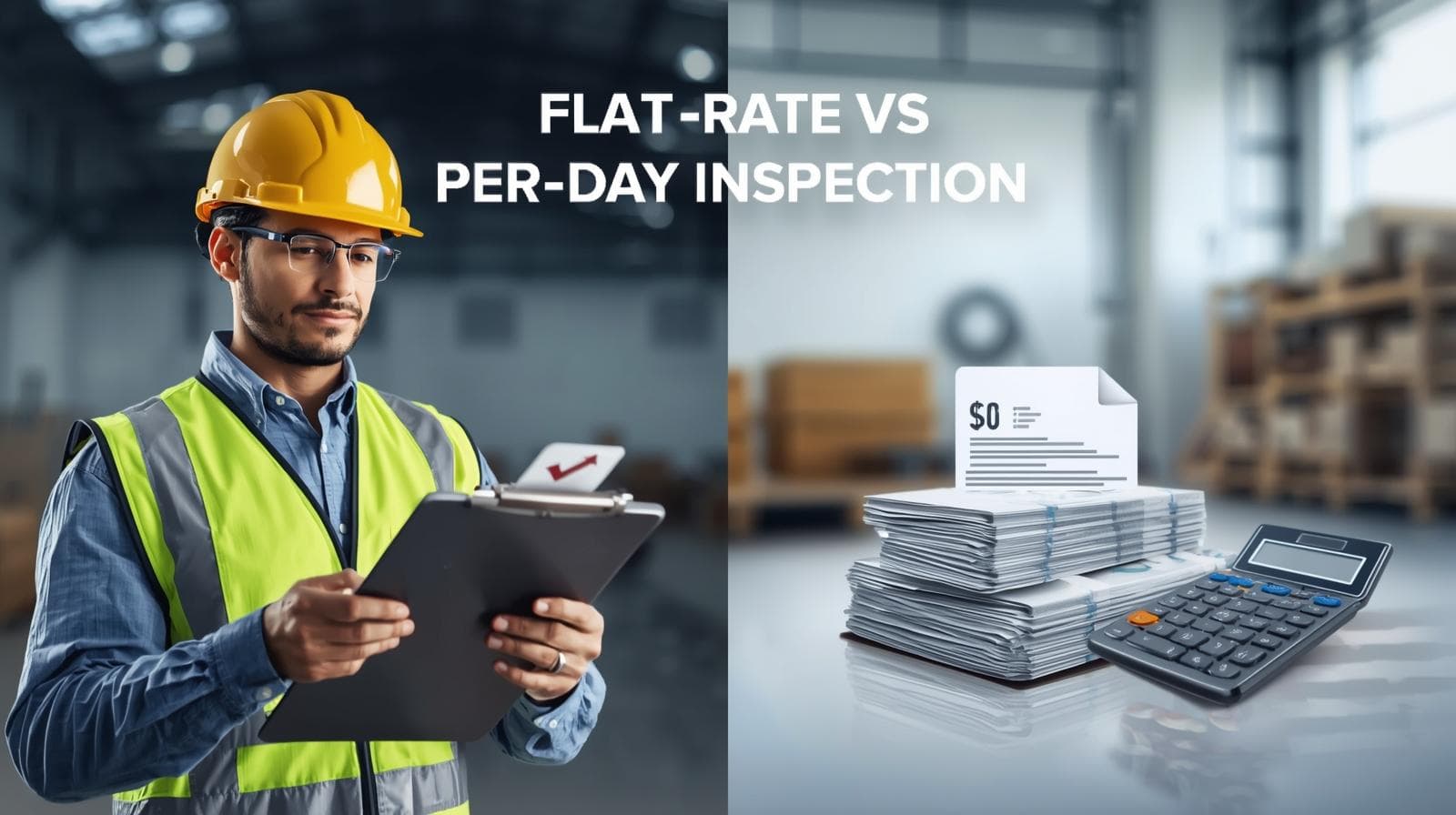A during production inspection (DPI) is an on-site quality check conducted when 20–60% of an order has been manufactured, allowing early detection of defects and process issues before they affect the full production run.
On-site quality control during manufacturing to verify products meet specifications at every stage, catching defects early.
Starting from $240/man-day · No hidden fees

A during production inspection (DPI) is a proactive quality control measure performed when 20–60% of your order has been manufactured. Unlike a pre-shipment inspection that evaluates finished goods, a DPI gives you visibility into the manufacturing process itself — enabling early detection and correction of defects before they multiply across the full production run.
Our inspectors visit the factory to assess both the production line and completed units. They verify that raw materials match your specifications, check work-in-progress for process deviations, sample finished units for workmanship and dimensional accuracy, and evaluate the factory's production pace against your delivery timeline. All findings are documented with photographs and defect classifications.
A DPI is particularly valuable for large orders, complex products, first-time suppliers, or repeat orders where previous inspections revealed quality issues. By catching problems at the 20–60% completion stage, you can request corrective actions while the cost of rework is still manageable — rather than discovering defects when the entire batch is finished and packed.
Our inspectors cover all major manufacturing regions across Asia, delivering detailed reports within 24 hours of each inspection.
Coordinate with your supplier to confirm when 20–60% of production is complete. We schedule the inspection within 48 hours of your booking.
Our inspector evaluates the factory's production setup, raw materials in use, and work-in-progress items to verify alignment with your specifications.
Random samples from completed units are inspected for workmanship, appearance, dimensions, functionality, and conformity to approved samples.
The inspector assesses production pace, workforce allocation, and remaining workload to estimate whether the delivery deadline will be met.
Any defects or process issues are documented with photos and actionable recommendations, giving you leverage to request corrections before production continues.
Detect and correct defects early before they spread across the full production lot
Verify that raw materials and components meet your quality specifications
Monitor production timeline to anticipate and prevent delivery delays
Reduce the risk of a failed Pre-Shipment Inspection by ensuring quality during manufacturing
Gain visibility into your supplier's manufacturing processes and capabilities
Minimize rework costs by addressing issues when only a fraction of the order is affected
Build a quality record for your supplier to inform future sourcing decisions
Starting from $240/man-day · 48-hour scheduling

A practical ROI framework for quality control inspections. Learn the formula, benchmark costs of defects, chargebacks, and returns, and see real-world examples showing when inspections pay for themselves — and when they don't.
Read full article: How to Calculate the ROI of Quality Control Inspections
An honest breakdown of the two main pricing models in the quality control industry. Learn when flat-rate pricing makes sense, when per-day pricing is better, and how each model affects your budget, planning, and long-term QC costs.
Read full article: Flat-Rate vs Per-Day Inspection Pricing — Which Model Works for Your Brand?
Every purchase order carries risk. You’re relying on a factory often thousands of miles away to deliver what was promised, built to the right specifications, and compliant with your market’s regulations. In practice, that chain breaks more often than buyers admit.Without independent verification, th
Read full article: Third Party Inspection Services: Why Independent Quality Control Matters More Than EverGet a quote in minutes. Our inspectors are ready worldwide.
Average scheduling: 48 hours from booking